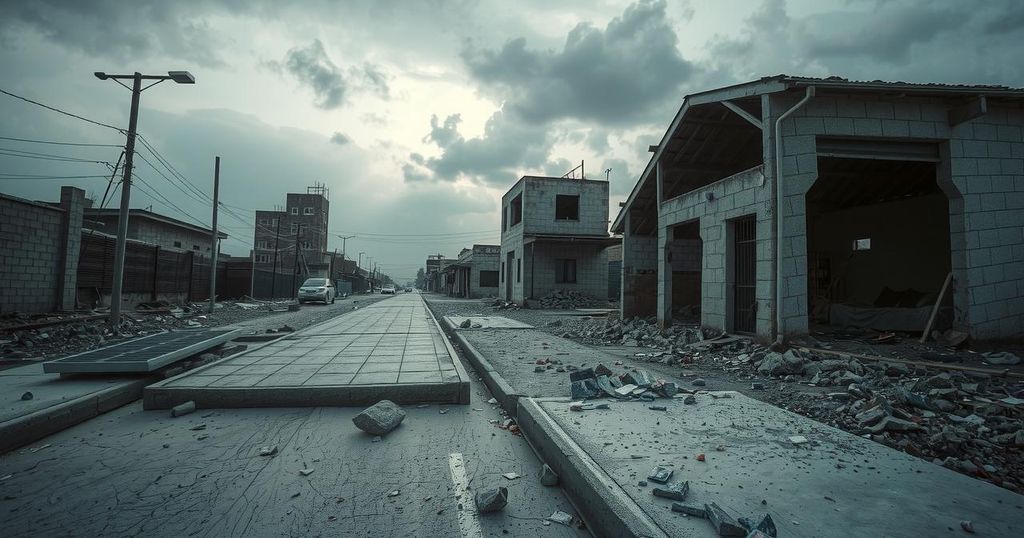Deadly Escalation of Conflict in the DRC: The M23 Insurgency and Its Global Implications

The DRC is experiencing a resurgence of violence due to the M23 rebel group’s advance towards Goma, raising global concern over the humanitarian crisis and geopolitical implications. The DRC government is mobilizing its forces, while international responses remain limited, despite the significant toll of the conflict on civilians and peacekeepers. Historical ethnic tensions and resource control further complicate the situation in this mineral-rich nation.
A violent insurgency, led by the M23 rebel group, is currently escalating in the Democratic Republic of Congo (DRC), a country rich in minerals essential for modern technology. Following their capture of Goma, a strategic eastern city, M23 aims to extend its influence further. The DRC government, led by President Félix Tshisekedi, has declared a comprehensive mobilization to reclaim its territories amidst increasing global concern over the ongoing violence.
Conflict has plagued the DRC since its independence from Belgium in 1960. The recent fighting has intensified, displacing over 400,000 individuals last month alone, while gun battles around Goma resulted in fatalities among U.N. peacekeepers. The resurgence of M23, particularly its territorial gains in the South Kivu province, echoes struggles from earlier wars that saw millions perish due to violence, malnutrition, and disease.
The international response to the crisis has been muted, with Romanian mercenaries reportedly seeking refuge with U.N. peacekeepers after failing to repel the insurgents. While some nations exhibit concern, others face backlash for perceived inaction, as demonstrated by the damage to the French Embassy amid protest. The implications of the crisis extend globally, raising questions about the credibility of Western nations in their response to African conflicts.
The M23 group, primarily composed of ethnic Tutsi, emerged out of historical ethnic strife, particularly after the Rwandan genocide. Although the Rwandan government denies aiding the M23, allegations persist regarding military support from Kigali. The Congolese government accuses Rwanda of instigating aggression against its sovereignty, aggravating an already tense situation.
The DRC, comparable in size to Texas, is rich in vital minerals, including cobalt, necessary for the electronics supply chain. Despite years of violent conflict, the DRC’s resources remain largely unprotected, as armed groups vie for control. The M23 rebel group, which has ties to Rwanda, claims to advocate for the rights of the Tutsi minority, framing their insurgency within the broader context of ethnic tensions arising from historical injustices. Previous peace agreements have proven ineffective in stabilizing the region, which is marked by continuous ethnic conflicts. The resurgence of M23 can be traced back to these unresolved tensions, as factions within the DRC grapple with issues of power distribution and ethnic representation. As global demand for cobalt increases, securing peace and stability in this region poses challenges with geopolitical implications, especially for Western interests.
In summary, the escalating violence in the DRC, primarily fueled by the actions of the M23 insurgent group, has resulted in significant human suffering and displacement. The international community’s response remains tepid, with potential geopolitical repercussions as new alliances form in response to this crisis. The historical context of ethnic conflict and the DRC’s vast mineral wealth renders the situation a focal point for both humanitarian and geopolitical concern. Unless there is decisive action to address the root causes of the conflict and a commitment to protecting vulnerable populations, the DRC risks descending further into chaos, affecting stability across the region and beyond.
Original Source: www.nbcnews.com







